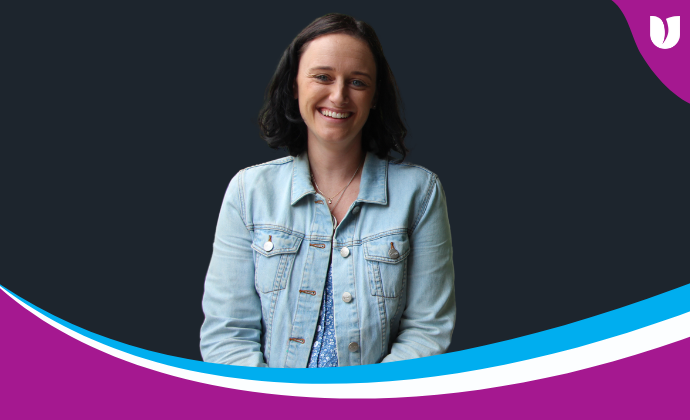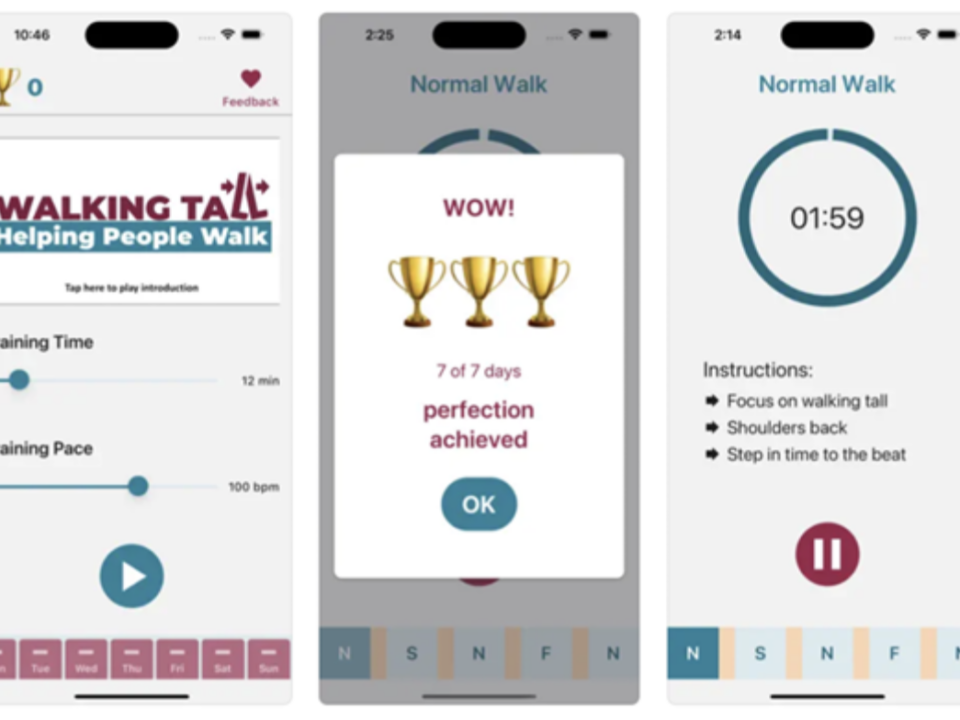Parkinson’s Specialist Nurse Lauren Hogan, who is based in Goulburn, began her working life in the financial sector, despite having a childhood ambition in nursing.
“I had always wanted to be a nurse, because my grandmother had been a nurse, but I didn’t go straight into it,” explains Lauren. “Eventually I decided that nursing was really what I wanted to do.”
Lauren travelled back and forth from Goulburn to Canberra University while doing her nursing training, and as a new graduate worked at Goulburn Hospital.
“Basically I’ve just stayed on,” says Lauren, who has now worked from there since 2013. “I’ve done various medical, surgical and post grad work, becoming a nurse educator and mentoring and teaching.
“When the Parkinson’s Specialist Nurse position came up I saw it as a specialty, an offshoot of education I’d been doing. I’d nursed Parkinson’s patients but this role was something I could really educate patients and carers about the disease and also work with allied health practitioners.”
Lauren’s regional area covers Yass, Crookwell and Queanbeyan as well as her Goulburn base.
“The driving doesn’t worry me,” says Lauren. “It’s not that far to each place. My biggest challenge is getting a patient help in a timely manner. Sometimes that can be me taking a patient’s question about medication side effects straight to their neurologist, rather than having them having to wait weeks or more and then travel for an appointment.
“People living with Parkinson’s and their carers in regional areas can find travel to specialists difficult for a variety of reasons. They may no longer have a driver’s licence, or may have financial issues with the cost of travel and possibly accommodation, as well as mobility issues. A big benefit of my role which drew me in was that I can help people find the right services and facilities. Being a local is also really beneficial as I know who to contact to ask all kinds of advice.”
Lauren began her new role in March 2022, but because it was a new position she first had to spend time setting up a brand new service. She has been seeing patients since June last year.
“I attend all local support group meetings, visit all the local allied health-care services to let them know about how I can help, and meet with each patient and carer as they are referred to me,” says Lauren.
“We find a mutually-agreed time and place for a first assessment, which might be their house or my office and it takes about two hours for a really thorough assessment. I ask about what they usually do in daily life, what they enjoy doing and what have they stopped doing. I try to get a really holistic picture and to work with them and their doctors and specialists to create a better regime for each patient.
“The patient and carer can remain in contact with me as often or as little as they like. I particularly try to help them work with the things they are finding really distressing. This might be not being able to get out as much, or no longer able to cook a meal or even trouble physically getting out of bed each day.
“I can organise an OT (occupational therapy) review and give them some tips as well. Little things can go a long way. And sometimes the patient is more likely to take advice from me, as a nurse, than from their carer, even if it’s the same advice.
“Carers can be pivotal with how we coordinate and plan care of a patient and we always consult them as they may have a different perspective on what has actually been happening. They can give really important information and we have to watch for carer burnout. They are supporting the patient but carers also need support and we do have groups just for them.
“I also love being able to go to the Parkinson’s NSW headquarters at Ryde (Sydney) at times and have get-togethers with other Parkinson’s nurses who are really experienced. We also share new medical and research information. I work part-time and currently have 40 patients on my books and it’s continuing to grow. I also have a family and help my husband in his building business part-time.”
In July this year Lauren will be one of the Parkinson’s specialist nurses attending the World Parkinson’s Congress in Barcelona.
“People there are all doctors, nurses and allied health practitioners learning from the best in the business,” Lauren explains. “I feel honoured to be able to learn and give back to my local community. I am really grateful for the local fundraisers who worked so hard for years to have a nurse locally and it’s a privilege to develop the role in our own community.”






